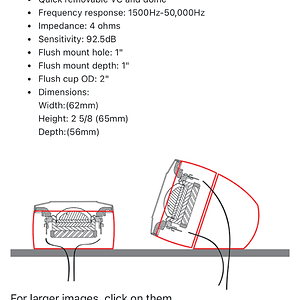You are using an out of date browser. It may not display this or other websites correctly.
You should upgrade or use an alternative browser.
You should upgrade or use an alternative browser.
-
22Participant count
-
Participant list
- Status
- Not open for further replies.
garretttt4 10+ year member
big pimpin
You gotta read the good parts! Your in a lot of people's prayers so try to keep your head up bro!What Is Dysautonomia?
In the 19th century there used to be a condition called neurasthenia. People would find themselves suddenly unable to function due to a host of inexplicable symptoms, often including fatigue, weakness, strange pains, dizziness and passing out. Doctors would not find anything to explain these symptoms, so they were attributed to a "weak nervous system," or neurasthenia. Women with neurasthenia (men were not given this diagnosis, by and large) were often confined to their beds, where they would either recover or eventually die. And while nobody knew what caused this condition, everyone -- doctors and laymen alike -- took it seriously.
Most modern doctors who hear about this mysterious condition merely shake their heads in wonder. Few seem to consider the possibility that neurasthenia is still with us. Consequently they are less capable of recognizing the manifestations of this condition than were their old-time counterparts, and tend to be far less sympathetic to its victim.
The Autonomic Nervous System And Dysautonomia
The autonomic nervous system controls the “unconscious” bodily functions, such as heart rate, digestion, and breathing patterns. It consists of two parts: the sympathetic system and the parasympathetic system. The sympathetic system can best be thought of as controlling the “fight or flight” reactions of the body, producing the rapid heart rates, increased breathing, and increased blood flow to the muscles that are to escape danger or cope with stress. The parasympathetic system controls the “quiet” body functions, such as the digestive system. So: the sympathetic system gets us ready for action, while the parasympathetic system gets us ready for rest. Normally, the parasympathetic and sympathetic components of the autonomic nervous systems are in perfect balance, from moment to moment, depending on the body’s instantaneous needs.
In people suffering from dysautonomia, the autonomic nervous system loses that balance, and at various times the parasympathetic or sympathetic systems inappropriately predominate. Symptoms can include frequent vague but disturbing aches and pains, faintness (or even actual fainting spells), fatigue and inertia, severe anxiety attacks, tachycardia, hypotension, poor exercise tolerance, gastrointestinal symptoms such as irritable bowel syndrome, sweating, dizziness, blurred vision, numbness and tingling, and -- quite understandably -- anxiety and depression.
Sufferers of dysautonomia can experience all these symptoms or just a few of them. They can experience one cluster of symptoms at one time, and another set of symptoms at other times. The symptoms are often fleeting and unpredictable, but on the other hand they can be triggered by specific situations or actions. (Some people have symptoms with exertion, for instance, or when standing up, or after ingesting certain foods.) And since people with dysautonomia are usually normal in every other way, when the doctor does a physical exam he or she often finds no abnormalities.
What Causes Dysautonomia?
Dysautonomia can be caused by many different things; there is not one single, universal cause. It seems clear that some patients inherit the propensity to develop the dysautonomia syndromes, since variations of dysautonomia often run in families. Viral illnesses can trigger a dysautonomia syndrome. So can exposure to chemicals. (Gulf War Syndrome is, in effect, dysautonomia: low blood pressure, tachycardia, fatigue and other symptoms that, government denials aside, appear to have been triggered by exposure to toxins.) Dysautonomia can result from various types of trauma, especially trauma to the head and chest. (It has been reported to occur after breast implant surgery.) Dysautonomias caused by viral infections, toxic exposures, or trauma often have a rather sudden onset. Chronic fatigue syndrome, for instance, most classically begins following a typical viral-like illness (sore throat, fever, muscle aches, etc.) but any of the dysautonomia syndromes can have a similar onset.
What Becomes Of People With Dysautonomia?
Fortunately, the prognosis appears far better than it was in the days when the disorder was called neurasthenia. This is likely because bed rest is no longer considered the treatment of choice. Most victims of dysautonomia eventually find that their symptoms either go away or abate to the point that they are able to lead nearly normal lives. Sometimes, in fact, the probability that things will ultimately improve on their own may be the only thing that keeps some of these individuals going.
But even though the symptoms eventually improve in most cases, many people with dysautonomia experience symptoms that completely disrupt their lives, and the search for competent medical assistance in rendering their symptoms tolerable is too often a difficult one.
NASTY08IMPALA 5,000+ posts
CarAudio.com Veteran
Buck 5,000+ posts
little alien on campus
- Thread Starter
- #20
Here's a better one, these are the symptoms that I have (I went through and took the ones I don't have out):
Common Symptoms of Dysautomia
Abdominal pain
Aching neck and shoulders
Acid reflux
Bladder dysfunction, incontinence, frequent urination, ***** retention
Changes in pallor
Chest pains
Cognitive impairment, brain fog/forgetfulness, inability to concentrate, difficulty with recall
Delayed gastric emptying, bloating after meals
Easily over-stimulated
Excessive fatigue, malaise
Excessive thirst
Exercise intolerance
Facial flushing
Feeling detached from surroundings
Feelings of anxiety or panic (not mentally induced), tremulousness
Food allergies/sensitivities (some foods seem to make symptoms worse)
Gastrointestinal problems, constipation, diarrhea
Headache, migraine
Hyperreflexia or absent reflexes
Hypersensitivity to sensory stimulation
Lightheadedness, dizziness or vertigo
Loss of appetite, feeling full quickly
Low back pain
Mood swings
Muscle and/or joint pain
Nausea
Nerve pain
Noise or light sensitivity
Numbness or tingling
Problems with temperature regulation; excessive or inadequate sweating, clamminess, chills, cold hands
Restless leg syndrome
Rapid or slow heart rate
Sleep disorders/insomnia
Trouble breathing, shortness of breath
Visual disturbances, pupillary dysfunction, blurred vision, tunnel vision
Weakness (generalized)
Weight loss or gain
Common Symptoms of Dysautomia
Abdominal pain
Aching neck and shoulders
Acid reflux
Bladder dysfunction, incontinence, frequent urination, ***** retention
Changes in pallor
Chest pains
Cognitive impairment, brain fog/forgetfulness, inability to concentrate, difficulty with recall
Delayed gastric emptying, bloating after meals
Easily over-stimulated
Excessive fatigue, malaise
Excessive thirst
Exercise intolerance
Facial flushing
Feeling detached from surroundings
Feelings of anxiety or panic (not mentally induced), tremulousness
Food allergies/sensitivities (some foods seem to make symptoms worse)
Gastrointestinal problems, constipation, diarrhea
Headache, migraine
Hyperreflexia or absent reflexes
Hypersensitivity to sensory stimulation
Lightheadedness, dizziness or vertigo
Loss of appetite, feeling full quickly
Low back pain
Mood swings
Muscle and/or joint pain
Nausea
Nerve pain
Noise or light sensitivity
Numbness or tingling
Problems with temperature regulation; excessive or inadequate sweating, clamminess, chills, cold hands
Restless leg syndrome
Rapid or slow heart rate
Sleep disorders/insomnia
Trouble breathing, shortness of breath
Visual disturbances, pupillary dysfunction, blurred vision, tunnel vision
Weakness (generalized)
Weight loss or gain
jockhater2 10+ year member
CarAudio.com Veteran
I just want you to know taylor. I have been praying every day since I messaged you last week about what is going on in your life. I have been praying for your mental and physical illness. If you ever have any questions about God/Jesus feel free to PM me.
macsdad 10+ year member
boom-boom
This goes for me too. I don't know you, but am willing to get to know you and pray with you. Be blessed brother, we are continously praying for not only you, but your family as well.I just want you to know taylor. I have been praying every day since I messaged you last week about what is going on in your life. I have been praying for your mental and physical illness. If you ever have any questions about God/Jesus feel free to PM me.
raptor727 10+ year member
come get some!!
eenyuheye8o8 10+ year member
Member
Hey man good luck I kind of know how you feel I actually have ulcerative colitis but I try to live like nothing's wrong with me. Good luck!
Buck 5,000+ posts
little alien on campus
Staynlean 10+ year member
Senior VIP Member
- Status
- Not open for further replies.
Activity
No one is currently typing a reply...
About this thread
- Start date
- Participants
- Who Replied
- Replies
- 31
- Views
- 6,237
- Last reply date
- Last reply from
- DLP_Customs
Latest topics
-
-
-
BOSS560RBG How to connect a sub, powered or otherwise.
- Started by Carlos_510
- Replies: 3
-
-


